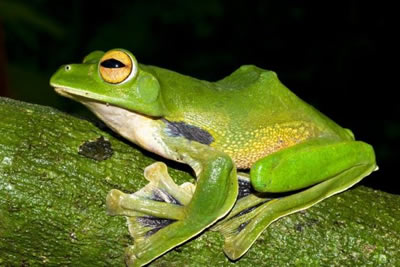UNCTAD coordinates activities to link trade with the sustainable use of biodiversity and maximize benefits.
Countries in the Mekong region have been leaders in developing products and services based on the sustainable use of biodiversity for years.
Many have also ratified the Nagoya Protocol on Access and Benefit-sharing, which sets a minimum standard for regulations on accessing genetic resources and sharing the benefits resulting from their utilization.
Despite being parties to this international agreement, only a few countries have Access and Benefit-sharing (ABS) laws and regulations in place.
More countries are now seeking to establish their own ABS systems considering their own national biodiversity priorities, including the potential development of BioTrade value chains.
BioTrade refers to the collection, production, transformation, and commercialization of goods and services derived from native biodiversity under the criteria of environmental, social and economic sustainability known as the BioTrade Principles and Criteria.

© WWF/Jodi JL Rowley
BioTrade-friendly systems
UNCTAD is supporting the development of BioTrade-friendly ABS systems in the Mekong region.
“We’re generating and disseminating research and information to enable countries to gradually comply with ABS standards to help meet the sustainable development goals,” said Lucas Assuncão, head of UNCTAD’s trade, environment, climate change and sustainable development branch.
On 4 and 5 December, UNCTAD brought together representatives of governments, intergovernmental organizations, the private sector and civil society to discuss developments in the implementation of ABS rules and BioTrade in Viet Nam, Laos and Myanmar.
The workshop co-organized with Helvetas Swiss Intercooperation took place in Hanoi, Viet Nam, under the framework of the Mekong Plan of Action implemented by UNCTAD under its Global BioTrade Programme, in cooperation with the Swiss State Secretariat for Economic Affairs SECO.
The workshop’s participants learned about regional BioTrade project cases carried out under Helvetas’s regional BioTrade project in south-east Asia.
They also found out about UNCTAD’s policy research on ABS, BioTrade and intellectual property rights in Viet Nam, and on model BioTrade and ABS contractual clauses in Laos.
In addition, they learned about the status of activities in the Mekong Plan of Action, which they revised for the next phase of implementation in 2020.
The workshop also included an intergovernmental exchange where government representatives from Viet Nam, Laos and Myanmar shared relevant knowledge and experience on ABS implementation successes and challenges.
This helped them identify and preserve knowledge that would have otherwise been lost due to staff turnover and termination of projects at agencies working on ABS.
It also encouraged the adoption of good practices based on lessons learned in implementing ABS in the neighbouring countries.
UNCTAD will continue to coordinate activities in the Mekong region to avoid the duplication of efforts, enhance synergies, maximize benefits from lessons learned and further link trade with the sustainable use of biodiversity and poverty alleviation.
Its BioTrade Initiative promotes sustainable trade in support of the objectives of the Convention on Biological Diversity, Convention on International Trade in Endangered Species of Wild Fauna and Flora as well as other multilateral environmental agreements and the UN’s global goals.


